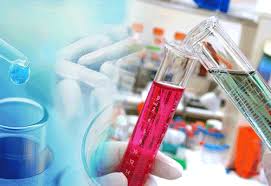India has been an active player in the pharmaceutical industry and has contributed globally towards making life saving drugs and low cost pharmaceutical products accessible and affordable for those in need. Be it the Rotavirus vaccine, heart valve prosthesis or affordable insulin, India has been a forerunner in these and many more. Despite, these advances Indian biopharmaceutical industry is still 10 to15 years behind their counterparts in the developed countries and faces stiff competition from China, Korea and others.
The lacuna primarily exists due to disconnected centers of excellence, less focus on translational research and staggered funding. There was an immediate need felt to focus on consolidated efforts to promote product discovery, translational research and early stage manufacturing in the country to ensure inclusive innovation.
i3 is committed to addressing these gaps with a Mission to make India a hub for design and development of novel, affordable and effective biopharmaceutical products and solutions. The aim of the Mission is to “Enable and nurture an ecosystem for preparing India’s technological and product development capabilities in biopharmaceuticals to a level that will be globally competitive over the next decade, and transform the health standards of India’s population through affordable product development”
As a flagship program of the Government of India in collaboration with World Bank, it promises to boost the growth curve for domestic biopharma in India by accelerating the translation of research concepts into viable products, supporting clinical validation, enabling sustainable networks for collaboration between industry and academia, and supporting entrepreneurial ecosystem amongst many others. Currently India has only 2.8% share in the global biopharmaceutical market, the program would elevate this to 5% resulting in an additional business opportunity of 16 Billion USD.
The Mission will provide a holistic and integrated approach to strengthen and support the entire product development value chain for accelerating the research leads to product development. This will help not only in immediate product development addressing public health needs, but will also help to create an ecosystem which will facilitate development of a continuous pipeline of products.
It will be implemented by Biotechnology Industry Research Assistance Council (BIRAC), a Public Sector Undertaking of Department of Biotechnology will bring together expertise from national and international corridors to provide strategic guidance and direction to move promising solutions through the product development value chain. The program thereby stands unique in its approach as it becomes a cradle to innovate, co-create and co-facilitate scientific discoveries and offers young entrepreneurs an avenue to engage with the best in the industry.
